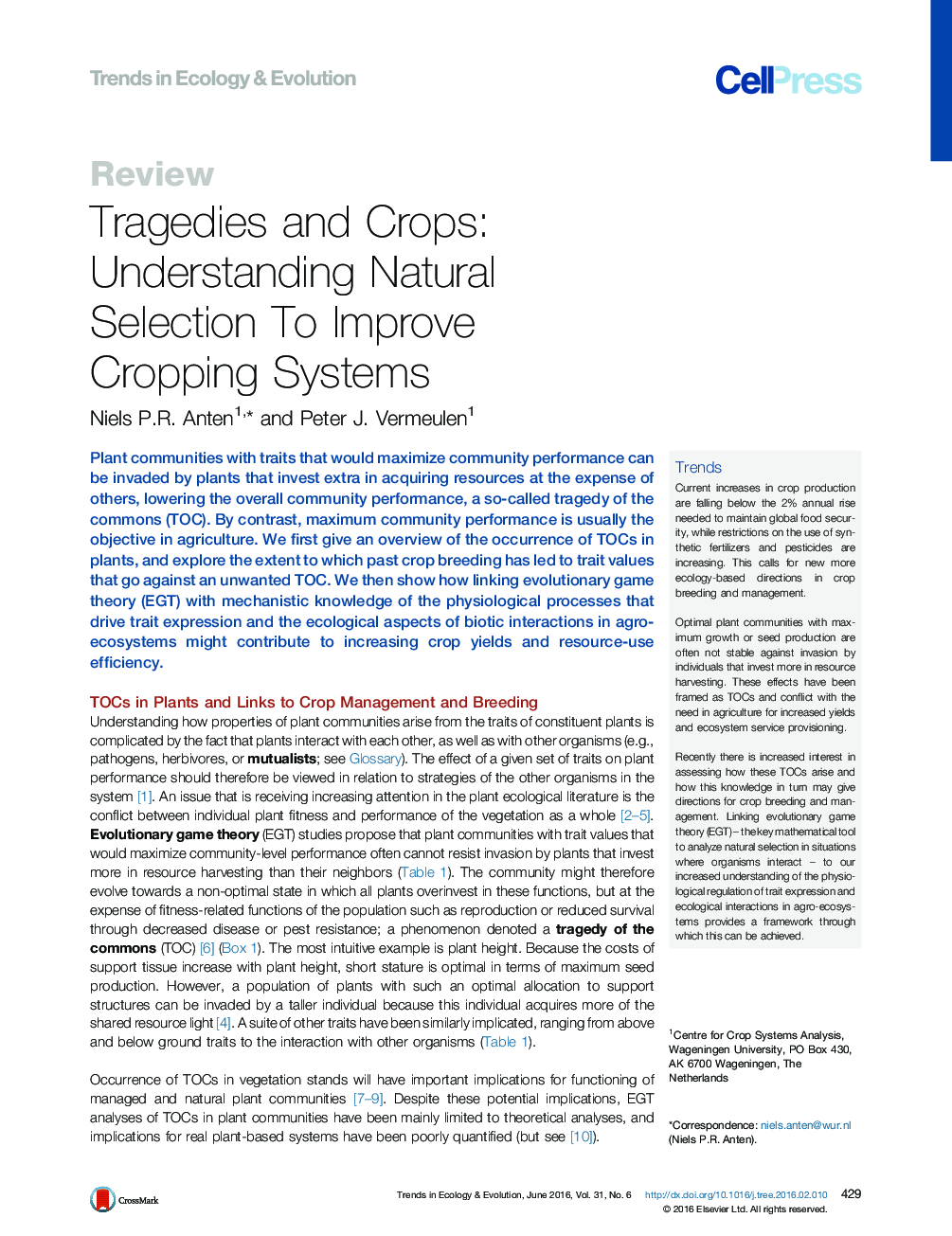| Article ID | Journal | Published Year | Pages | File Type |
|---|---|---|---|---|
| 142276 | Trends in Ecology & Evolution | 2016 | 11 Pages |
Plant communities with traits that would maximize community performance can be invaded by plants that invest extra in acquiring resources at the expense of others, lowering the overall community performance, a so-called tragedy of the commons (TOC). By contrast, maximum community performance is usually the objective in agriculture. We first give an overview of the occurrence of TOCs in plants, and explore the extent to which past crop breeding has led to trait values that go against an unwanted TOC. We then show how linking evolutionary game theory (EGT) with mechanistic knowledge of the physiological processes that drive trait expression and the ecological aspects of biotic interactions in agro-ecosystems might contribute to increasing crop yields and resource-use efficiency.
TrendsCurrent increases in crop production are falling below the 2% annual rise needed to maintain global food security, while restrictions on the use of synthetic fertilizers and pesticides are increasing. This calls for new more ecology-based directions in crop breeding and management.Optimal plant communities with maximum growth or seed production are often not stable against invasion by individuals that invest more in resource harvesting. These effects have been framed as TOCs and conflict with the need in agriculture for increased yields and ecosystem service provisioning.Recently there is increased interest in assessing how these TOCs arise and how this knowledge in turn may give directions for crop breeding and management. Linking evolutionary game theory (EGT) – the key mathematical tool to analyze natural selection in situations where organisms interact – to our increased understanding of the physiological regulation of trait expression and ecological interactions in agro-ecosystems provides a framework through which this can be achieved.
